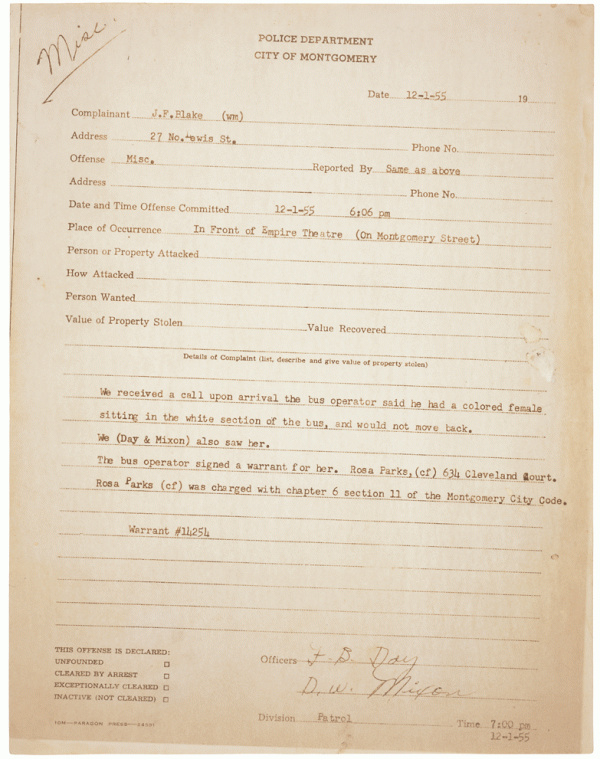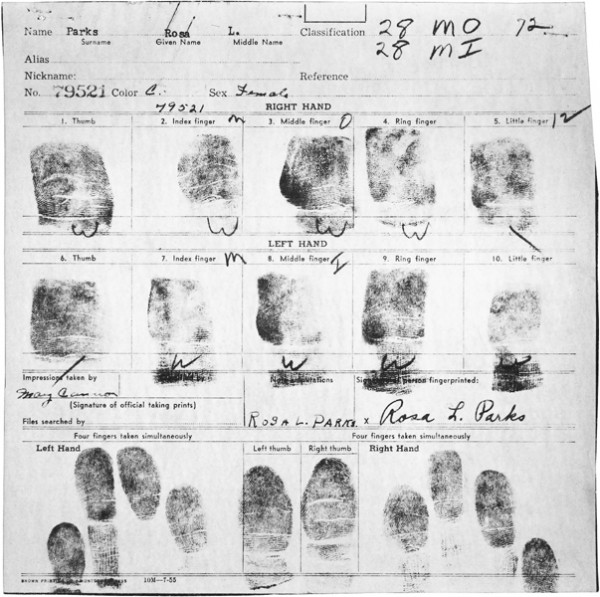Remembering Rosa Parks
Sixty years ago, Rosa Parks became one of the defining symbols of the American Civil Rights movement when she refused to give up her seat on a segregated bus in Montgomery, Alabama. This simple act of defiance sparked a wave of non-violent protest for equal rights.
On December 1, 1955, Rosa Parks was riding home from a long day at work on a segregated bus. She had been working as a seamstress at a Montgomery department store. When the white section of the bus had filled, the bus driver, James F. Blake, ordered Parks to vacate her seat for a white passenger. When she refused, the driver called the police and had her arrested.
Police report on the arrest of Rosa Parks (click to enlarge) / U.S. National Archives
Once she was arrested for civil disobedience, Parks was taken to the police station to be processed. In the police report, it states that Parks was charged with “refusing to obey orders of bus driver.”
Fingerprint card of Rosa Parks (click to enlarge) / U.S. National Archives
At the station, Parks was photographed, fingerprinted and briefly incarcerated.
Booking photo of Rosa Parks / Wikimedia Commons
On December 5, she was tried on charges of disorderly conduct and violating a local ordinance. After being found guilty, she was fined $10, plus $4 in court costs. Parks appealed her verdict, stating that the segregation laws were unconstitutional.
Bus seating chart showing where Rosa Parks was seated (click to enlarge) / U.S. National Archives
Although she was not the first African American to refuse to give up their seat, Parks’ defiant actions and arrest would spark the Montgomery Bus Boycott. For 381 days, the African-American community in Montgomery boycotted public transportation in protest of Parks’ arrest and segregation as a whole. The boycott captured the public’s attention and eventually, led the Supreme Court to declare the segregation of public transportation as unconstitutional.
Parks’ small and courageous act not only made her a symbol of the American Civil Rights movement, but also an international icon for equality.












 Genealogy Discussions
Genealogy Discussions Genealogy Projects
Genealogy Projects Popular Genealogy Profiles
Popular Genealogy Profiles Surnames
Surnames The Geni Blog
The Geni Blog The World Family Tree
The World Family Tree